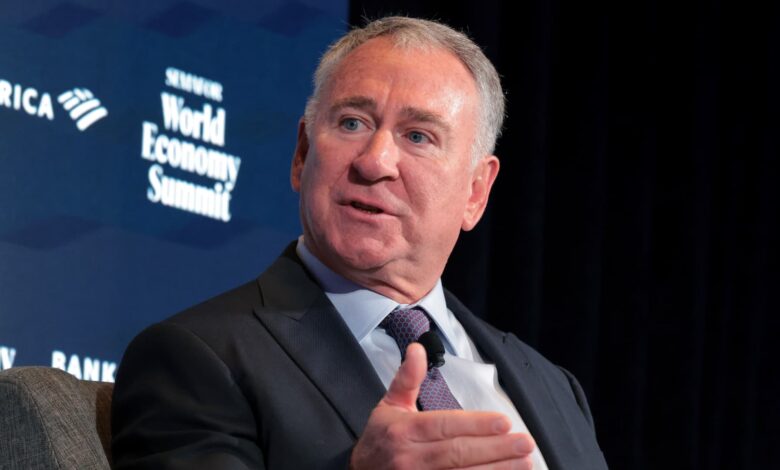Citadel’s Ken Griffin warns Trump about tarnishing ‘brand’ of U.S. Treasurys

Ken Griffin, the CEO of Citadel, recently expressed concerns about President Donald Trump’s trade policies and their impact on the reputation of the United States. Speaking at Semafor’s World Economy Summit in Washington, D.C., Griffin emphasized that the U.S. is more than just a nation – it is a universal brand that represents culture, financial strength, and military power. He warned that the current trade fight could erode the country’s standing on the global stage.
President Trump’s recent implementation of high tariffs on imports has sent shockwaves through the world economy, causing extreme volatility on Wall Street. While the president has announced a temporary pause on some tariff increases, tensions remain high, leading to rising Treasury yields and a weakening dollar. Griffin noted that investors are now looking for safer havens outside of the U.S., jeopardizing the country’s status as a top investment destination.
As the head of a hedge fund with over $65 billion in assets under management, Griffin had previously supported Trump and donated to Republican politicians. However, he has been critical of the president’s trade policies, describing his rhetoric as “bombastic.” Griffin emphasized the importance of maintaining the strength and credibility of the U.S. Treasury market and the dollar, highlighting the risks of tarnishing the country’s financial brand.
In light of these concerns, Griffin called on the President, the Secretary of the Treasury, and the Secretary of Commerce to act thoughtfully and responsibly in order to protect and strengthen the country’s financial brand. He warned that damaging this reputation could have long-lasting consequences that may take a lifetime to repair.
Overall, Griffin’s remarks underscore the delicate balance between economic policies and global perceptions of a country’s financial stability. As the U.S. navigates uncertain trade negotiations and market fluctuations, it will be crucial for policymakers to consider the broader implications of their actions on the country’s reputation and financial standing.





